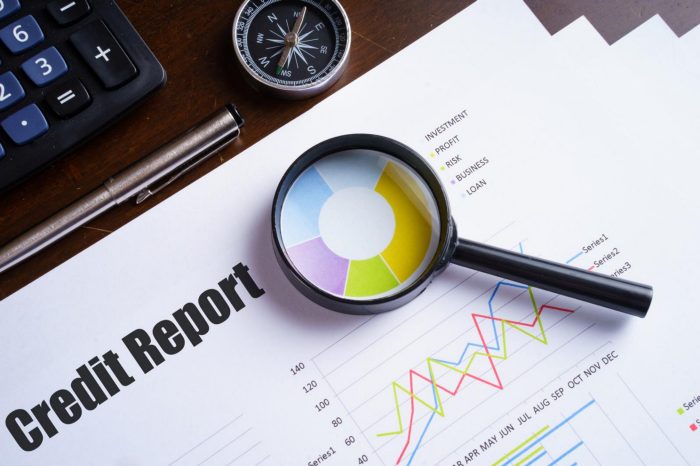Table of Contents
How to Repair a Credit Score
Whether you’re in the process of buying a car, finding a place to rent, or purchasing a home, insufficient credit can be an unpleasant surprise for those who are not prepared. Simply put, your credit score and report tell potential lenders how likely it is for you to pay them back, so a higher credit score often means that you will get a more competitive rate.
With this in mind, the most direct way to achieve a good credit score is by being a reliable borrower and establishing a history of successfully paying back your debts. One of the common mistakes first-time homebuyers make is not monitoring their credit when obtaining a mortgage. However, this is easier said than done. So we decided to put together this beginner’s guide to credit repair.
What’s Considered a Good Credit Score?
A quick way to know if your credit score is in trouble or not is to understand the ranges in which a credit score stands. Credit scores usually fall on a scale from 300-850, 300 being the worst sign of your credit score, and 850 signaling excellent credit. According to NerdWallet, below are the ranges in which a credit score falls:
Bad – 300-629
Fair – 630-689
Good – 690-719
Excellent – 720-850
Around 60% of Americans have a fair credit score or higher, leaving the other 40% in either an unfavorable position or one of the best positions to be in. For those who have a bad to fair credit score, or even have a good credit score and want to improve it, you’re in the right place.
What Does a Credit Score Measure?

Next, let’s discuss credit scores and how they are determined. Creditors use a statistical formula to review the data in your files and compare it to the credit performance of consumers with similar profiles. A credit scoring system awards points for each factor. The total of your points determines your credit score and gives lenders a prediction of how you may repay your loan.
Credit scores seek to answer five questions for lenders.
- Do you pay your bills on time? — Borrowers who don’t pay their bills on time are not considered reliable borrowers by lenders. Having an account sent to a collections agency, declaring bankruptcy, or making late payments will negatively impact your credit score.
- What is your outstanding debt? — Lenders generally prefer that borrowers conservatively use their credit, prompting credit agencies to compare your outstanding debts to your credit limits. If you are too close to your limit, it will likely harm your credit score.
- How long is your credit history? — A short credit history doesn’t always give an accurate portrait of what the client is like as a borrower, so it can harm your score. However, on-time payments and low balances can-850 offset this because they help establish your reliability.
- Have you applied for new credit recently — If you apply for several new accounts in a short period, it may suggest that you might not be thinking about your long-term financial situation. Because this can make a borrower look unpredictable, this will usually lower a credit score.
- How many and what types of credit accounts do you have? — Having too many credit lines open at once can harm your credit score, but did you know that this applies to the type of credit as well? The most critical aspect is whether or not your credit is manageable, but if you have several different credit cards or installment loans, then that can hurt your score.
Request and Review Your Credit Report

Your credit score comes from the information on your credit report, so it is crucial to make sure that all of the information on your credit report is accurate. Each of the three main credit bureaus (Equifax, Experian, and Transunion) are required to give you a free credit report every 12 months. To access your free credit reports, submit a request at www.annualcreditreport.com. Be prepared to provide your name, your home address(es) from the past 2 years, SSN, and DOB. Space out your free reports evenly throughout the year to catch changes as they come so that mistakes don’t stay on your report for too long.
If you find errors during your review, send a dispute letter to both the credit reporting agency and the creditor who provided the incorrect information. Your letter must point out each error, explain why you are disputing each item, include documentation that supports your position(s), and explicitly request that the information be removed. Be sure to keep a copy of the letter for your files.
When your letter is received, consumer reporting companies are required to investigate your dispute and give you a written copy of the results. If your dispute results in a change to your report, the company must give you a free copy to review. To make sure that people don’t have bad credit information about you, be sure to ask the company to send notices of correction to anyone who requested your credit report in the last six months.
Improving Your Credit

If you have not found any errors on your credit report, but have a lower than preferred credit score, there are several ways to improve your credit. Since your credit shows how reliable you are as a borrower, the best advice on how to improve your credit is to be a model borrower. Being a model borrower means paying bills on time, all the time. Late payments can be a massive blow to your credit score, so do whatever it takes to make your payments on time. If necessary, call the creditor to see if they want to work out a payment plan; most creditors are willing to negotiate a payment plan so that they can keep your business without having to send your debt to a collection agency.
Watching your credit card balances is a safe way to ensure your credit score shows no sign of dropping. A good rule of thumb is to use 30 percent or less of your available credit. Another good idea is to keep your credit cards open if you are not using them since they will still be calculated into the figure as available credit despite how often you take advantage of that credit. It will also help you meet your credit history requirements.
Another suggestion is to be wise about which debts you want to pay off. Don’t forget to consider the interest rate on each piece of credit and strategically pay off high rates.
Creating a Budget to Pay Down Debt and Improve Credit

One effective method of paying down debt and improving your credit score is Dave Ramsey’s Snowball Plan. The first step is establishing what your budget is. Determine how much you make, how much you spend on bills, where you spend the rest of your money after bills, and what your financial goals are. If you have a nailed-down budget, it will give you a better framework to start reducing your debt.
Once you have a budget, make a list of all of your debts and their balances, arranging them from the smallest to the largest amount owed. Once you have that list, make the minimum payments on all of your debts and put any additional funds into the smallest debt on your list. When you have fully paid off that smallest debt, use the money that you would have paid on that debt to pay off the next smallest item on your list. Keep “snowballing” your payments together and pay ahead on the larger debts until you have paid them all off. The snowball method is useful because it allows you to maintain a consistent budget, knock smaller credit balances off of your report, and help you make significant strides in paying off your larger debts.
Credit Repair Scams
Since credit is heavily correlated to financial and private information, it is a prime target for scammers. One common scammer tactic is masquerading as a quick credit repair service. As we’ve established in this article, repairing credit takes time and effort, so any offers of quick fixes should raise a red flag. You should be suspicious of a company if:
- The company wants you to pay before your services are rendered. This is illegal under the Credit Repair Organization Act.
- The company requests that you do not contact any major credit agencies.
- The company claims that it can remove negative information from your credit report.
- The company suggests inventing a new credit identity by applying for an Employer Identification Number instead of your Social Security Number.
- The company advises you to dispute accurate information
Credit Dos and Don’ts
Getting and maintaining good credit is a long-term and invested process. Review the following lists of credit dos and credit don’ts. Are you making all of the right moves to improve your credit?
Credit DOs
- Make payments on time
- Monitor your credit score
- Keep some credit lines open
- Close store cards
- Open a credit card if you don’t already have one
- Limit credit card use
- Set up automatic alerts for credit cards
- Set up automatic payments
Credit DON’Ts
- Close accounts before applying for a loan
- Close your oldest credit cards
- Open multiple cards at the same time
- Pay below your minimums on credit cards
- Transfer a balance to an account with a lower limit
- Neglect any kind of bill
- Procrastinate
- Make late payments
Your Credit Score Matters

By all appearances, your credit score is merely a number. Then when you take in all accounts and consider its effects on your life goals, it’s so much more. Most lenders are lenient when it comes to how your credit score determines your ability to borrow, while others are not. Regardless, you don’t want to take that risk and do what you can to make sure it’s at an optimal stage.
When buying a home, your credit score will be one of the driving factors toward your mortgage rate, making or breaking your desired monthly payment. We hope this article touched bases on why your credit score is important and gave you some peace of mind into ways to fix it. If you’re looking for a loan program that accommodates your credit score, contact us today and we’ll be happy to provide the right options for you.
Financing details are for educational purposes only. Rates, program terms, fees, and conditions referenced are subject to change without notice. Not all products are available in all states for all amounts. All mortgage applications are subject to underwriting guidelines and approval. This is not an offer of credit or a commitment to lend. Residential Wholesale Mortgage, Inc. dba RWM Home Loans is an equal housing lender licensed by the CA Department of Real Estate #01174642 and CA Department of Financial Protection and Innovation under the California Residential Mortgage Lending Act. NMLS# 79445



